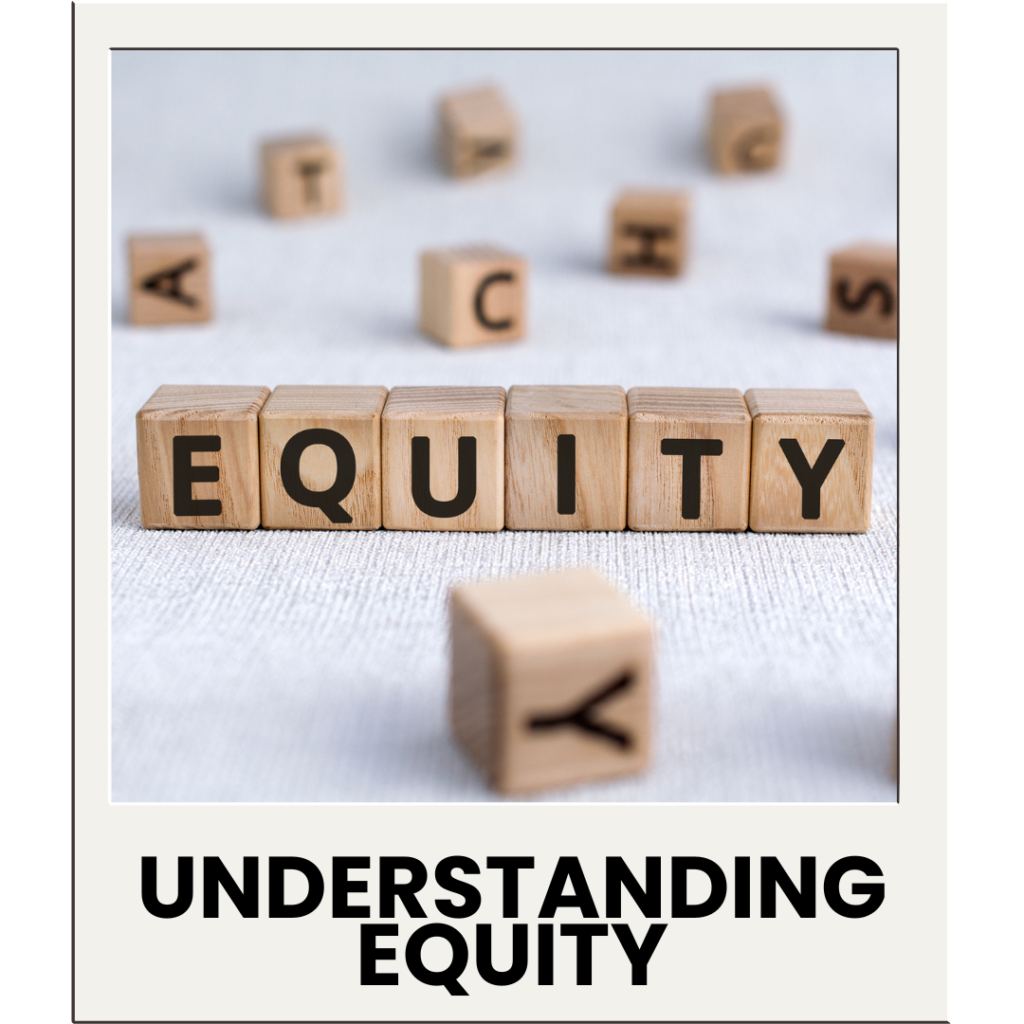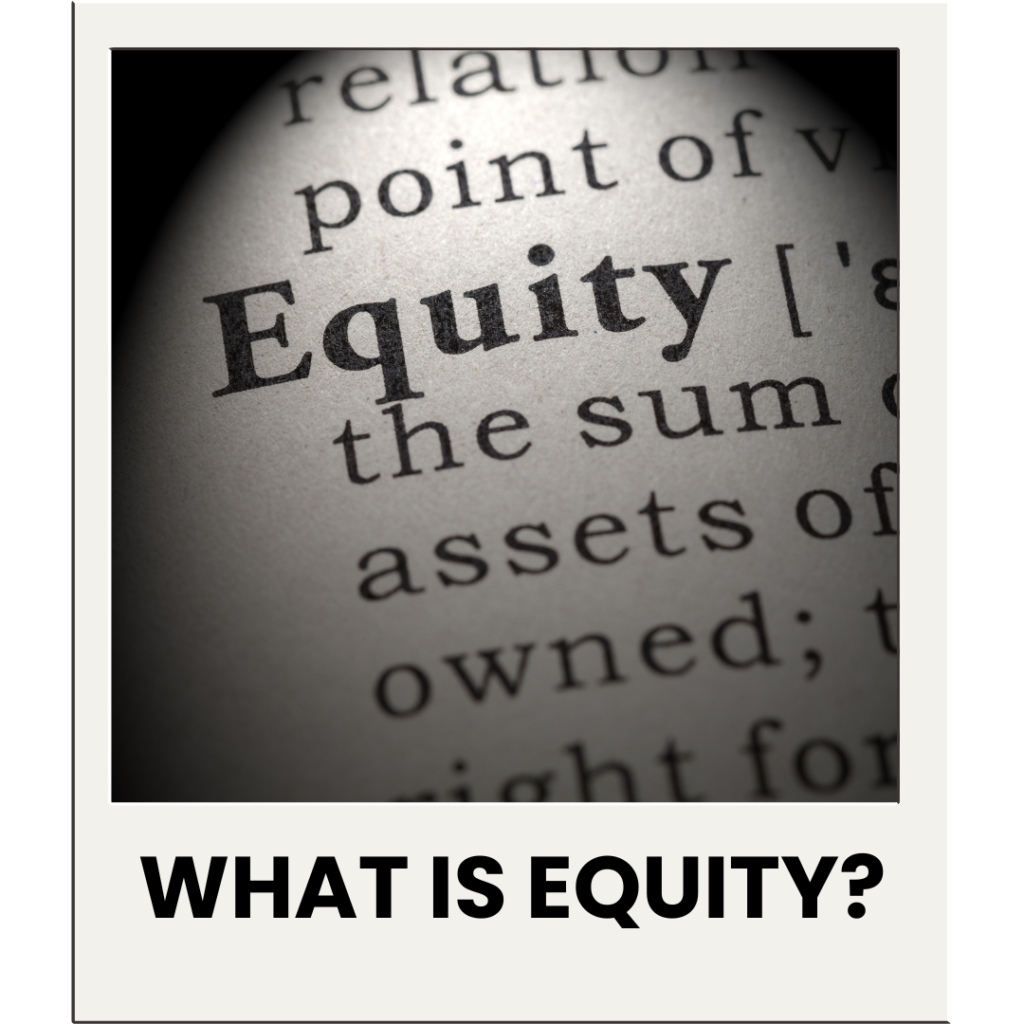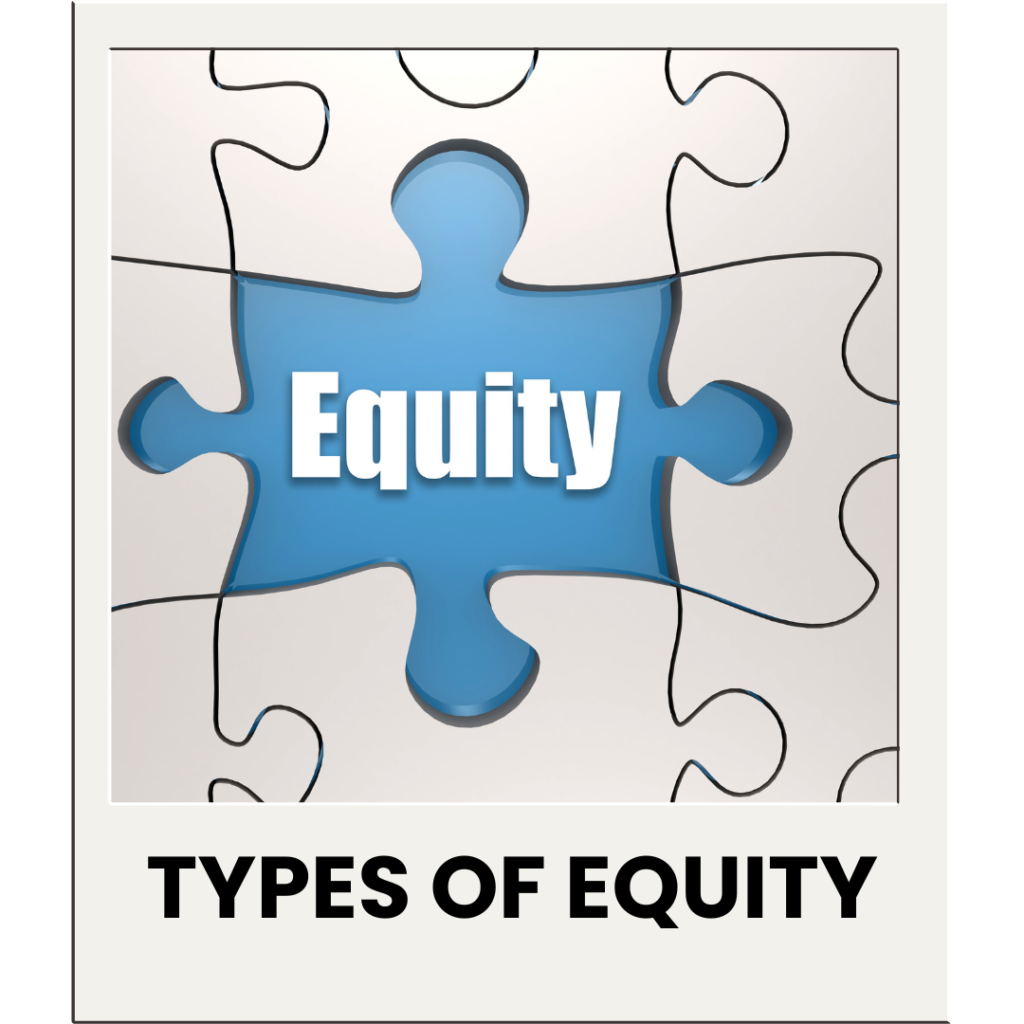
When it comes to building and growing a successful business, understanding the concept of equity is absolutely essential for both new and experienced entrepreneurs alike. Equity represents more than just ownership; it is a fundamental aspect that determines the financial health and overall value of your business. As a business owner, understanding how equity works can help you make informed decisions regarding raising capital, structuring ownership, and managing your finances effectively. Equity is a key measure of your business’s worth and can directly impact its growth potential.
Whether you’re looking to attract investors, plan for future expansion, or ensure the long-term success and sustainability of your business, understanding the intricacies of equity is crucial. By grasping the various ways equity functions within your business, you’ll be in a better position to evaluate opportunities and risks. This knowledge will guide you when making decisions about financing, structuring your company, and planning for the future. Whether you are running a small startup or managing a growing enterprise, equity plays a critical role in your financial strategy.
In this blog, we will delve deep into what equity means, how it functions within a business, and why it is one of the most important aspects for any entrepreneur to grasp. We’ll explore how equity influences ownership distribution, financial stability, and the potential to attract external investments. By the end, you will have a clear understanding of how equity works and how it can be used to drive the success of your business. With this knowledge, you’ll be equipped to make confident, informed decisions that will positively shape the future of your business and contribute to its financial growth.

What is Equity?
In simple terms, equity refers to the value of ownership in a business, calculated by subtracting the liabilities from the assets. Essentially, equity is the amount left over after all debts and obligations have been settled. To illustrate this, imagine selling all your business assets and using the proceeds to pay off any liabilities. The remaining value would then be considered your equity. For example, if your business has assets worth £500,000 and liabilities amounting to £200,000, the equity in your business would be £300,000. This represents the residual value of your business that belongs to the owners or shareholders.
Equity in a business can be divided in various ways depending on the business structure. In a limited company, equity is typically divided into shares, and the ownership is determined by the number of shares held by each shareholder. For sole traders or partnerships, equity refers to the total value that the owner or owners have invested into the business. Therefore, the concept of equity not only reflects the financial worth of the business but also indicates the level of ownership and control that an individual or group has within the business.
It is important to recognize that equity is not merely a financial term; it plays a crucial role in the structure and governance of the business. The distribution of equity can influence decision-making, profit-sharing, and control within the company. Whether you’re considering raising capital, offering stock options, or structuring the company for future growth, understanding equity is fundamental to making strategic decisions that can impact the long-term success of your business.

When it comes to business, equity represents the ownership value that stakeholders, such as business owners or shareholders, hold in a company. There are several types of equity, each serving a different purpose and reflecting varying degrees of ownership and financial structure within a business. Understanding these different types is crucial for business owners, investors, and anyone involved in the financial planning of a company. Let’s explore the main types of equity:
1. Owner’s Equity (or Shareholder’s Equity)
This type of equity refers to the ownership interest of the shareholders or business owners in a company. It is calculated by subtracting the company’s total liabilities from its total assets, and it represents the residual value of the company that is attributable to the owners after all debts and obligations have been settled. For instance, if a business has $500,000 in assets and $300,000 in liabilities, the owner’s equity would be $200,000. In a sole proprietorship, this is simply the owner’s personal stake in the business, while in a limited company, it represents the share capital held by the shareholders.
2. Common Equity
Common equity refers specifically to the shares owned by the common shareholders of a company. These shareholders typically have voting rights and the ability to participate in decision-making processes, such as electing the board of directors. Common equity also entitles shareholders to receive dividends and, in the case of liquidation, a portion of the company’s remaining assets after debts have been paid. This type of equity is considered a riskier investment, as common shareholders are last in line to receive payment if the company faces financial troubles.
3. Preferred Equity
Preferred equity is a class of ownership in a company that has a higher claim on assets and earnings than common equity. Preferred shareholders receive dividends before common shareholders, and these dividends are typically at a fixed rate. In the event of liquidation, preferred equity holders are paid before common shareholders, but after debt holders. However, unlike common equity, preferred equity usually does not come with voting rights. This type of equity is often seen as a less risky investment than common equity because of the preference in receiving dividends and liquidation proceeds.
4. Retained Earnings
Retained earnings represent the portion of a company’s profits that are reinvested in the business instead of being paid out as dividends to shareholders. This form of equity is accumulated over time as the company grows and generates profits. Retained earnings can be used for reinvestment in the business, paying down debt, or funding new projects. It is a key component of a company’s long-term equity growth, as it increases the financial resources available to support future expansion and operations.
5. Paid-in Capital
Paid-in capital (also known as contributed capital) refers to the money that shareholders invest in the company, typically in exchange for stock. This is the capital that a company receives from issuing shares to investors and is often used for raising funds to support business activities and growth. Paid-in capital can be divided into common stock and additional paid-in capital, which represents any money paid above the par value of the shares.
6. Equity Capital
Equity capital is the money invested in a company by its owners or shareholders in exchange for ownership interests. This is the primary source of funding for businesses, and it is considered a long-term investment because it does not require repayment like debt financing. Equity capital includes both common and preferred equity and is essential for a company to fund its operations, grow, and take on new opportunities.
7. Venture Capital
Venture capital is a form of equity financing provided by investors to start-ups or early-stage businesses with high growth potential. Venture capitalists typically invest in exchange for equity ownership in the business, often in the form of common or preferred stock. This type of equity is generally high-risk, as many start-ups may not succeed, but it offers the potential for significant returns if the company grows successfully.
8. Private Equity
Private equity refers to investments made into private companies (companies not listed on the public stock exchange) with the goal of improving their value and then eventually selling them for a profit. Private equity firms often acquire companies, take them under their wing, and work on restructuring or improving operations to increase profitability before eventually selling the company or taking it public. Private equity typically involves larger investments and offers more control over the management of the company compared to venture capital.
9. Equity in Real Estate
While not always thought of in a business context, equity in real estate refers to the value of a property that is owned outright after subtracting the mortgage or other liabilities. For business owners who own their commercial property or real estate, the equity in that property represents an important asset. As the mortgage is paid down and the property appreciates in value, the equity in the property increases, contributing to the overall wealth and financial health of the business.

Why is Equity Important for Your Business?
Equity plays a critical role in the financial stability and growth of your business, and understanding its importance is essential for entrepreneurs looking to succeed. It is not just a measure of your company’s value but also a key determinant in your ability to raise capital, secure investment, and drive long-term growth. A strong equity position acts as a solid foundation when approaching banks or investors for funding, as it demonstrates your business’s financial health and its potential for future expansion. Lenders and investors are more likely to provide financial support to businesses with strong equity, as it indicates a lower level of risk and a greater chance of financial returns.
Moreover, equity is highly attractive to investors, who are often drawn to businesses that exhibit strong equity growth. They can see the potential for significant returns on their investment, making it more likely that they will want to participate in your company’s success. But equity isn’t just about attracting external funding—it also plays a crucial role in the internal structure of the business. It determines how profits are shared among the owners or shareholders and influences decision-making processes within the company. The more equity an individual or group holds, the greater their level of control and influence over key business decisions.
Equity is also vital when it comes to incentivizing employees and aligning their interests with the company’s goals. Many businesses offer stock options or profit-sharing arrangements as a way to reward employees, motivating them to contribute to the company’s success. By offering employees a stake in the business, you can encourage loyalty, improve performance, and drive growth. In the end, equity represents the overall financial health of your business. By focusing on building and maintaining equity, you can ensure your company has the resources and stability needed to thrive in today’s competitive business world.
How to Build Equity in Your Business
Building equity in your business is a gradual yet crucial process that requires careful planning, strategic decisions, and consistent effort. One of the most effective ways to build equity is by increasing profitability. This can be achieved by expanding your customer base, improving marketing strategies, and enhancing your product or service offerings. Simultaneously, streamlining operations and cutting unnecessary costs, without compromising quality, can help increase profit margins. As your business becomes more profitable, the value of your assets rises, which, in turn, boosts the equity you hold in the business. Focusing on sustainable growth allows you to accumulate more equity, creating a strong financial foundation for the future.
Reinvesting profits back into the business, rather than withdrawing them as personal income, is another key strategy for building equity. By reinvesting, you are fueling the growth of the company and increasing its value over time. This could involve investing in research and development, expanding your product line, improving customer service, or upgrading technology and infrastructure. Each of these investments not only enhances the business’s capacity to generate future profits but also contributes to its overall worth. The compounded effect of reinvestment can significantly elevate your business’s equity, strengthening its position in the market.
In addition to boosting profitability, reducing liabilities is a crucial component of building equity. The less debt your business carries, the higher your equity value will be. A strategic approach to paying down high-interest debt, managing cash flow efficiently, and avoiding unnecessary borrowing will reduce liabilities and help strengthen your financial position. Furthermore, acquiring valuable assets, whether through purchasing property, developing intellectual property, or investing in essential equipment, can significantly increase the total value of your business. Over time, building equity becomes a long-term endeavor that requires patience, foresight, and a clear strategy. However, with consistent effort and a focus on value-enhancing opportunities, the rewards can be substantial, securing the future success and financial stability of your business.
Managing Equity for Long-Term Success
Once you understand equity and its workings, managing it effectively becomes essential for your business’s long-term success. Managing equity means balancing business growth with maintaining ownership and control. Issuing new shares can raise capital for expansion, but it leads to equity dilution, reducing your ownership percentage. Therefore, the decision to issue shares should be carefully considered, weighing the benefits of external funding against the potential loss of control.
In addition to considering equity dilution, it’s important to regularly monitor the ratio of assets to liabilities and make informed decisions about taking on debt or reinvesting profits. By keeping a close eye on your financials, you can make decisions that maintain or increase the value of your equity without overburdening the business with unnecessary liabilities. Effective management of equity also involves long-term planning, including preparing for future transitions such as an exit strategy, succession planning, or attracting potential buyers or investors. Having a clear vision for the future of your business and its equity position is critical to making strategic decisions that align with your long-term goals.
Regularly assessing the health of your business, setting measurable goals for increasing equity, and adjusting your approach based on market conditions are essential steps for ensuring the ongoing success of your business. By focusing on growing and maintaining your equity, you position your company to maximize its value, improve profitability, and attract investment opportunities. This strategic approach will not only enhance the financial stability of your business but also increase the potential for future growth and success, ultimately providing you with the highest return on your investment.
Get Expert Advice on Managing Your Business Equity
Building and managing equity can be a complex and multifaceted task, which is why it’s always wise to seek expert guidance to ensure your business is on the right path. At Go Win Accountants Ltd, we understand the intricacies of equity management and are dedicated to helping business owners like you navigate the challenges that come with it. Our team of experienced professionals is here to support you in understanding your business’s equity position and offering tailored advice on how to grow, protect, and manage it effectively. Whether you’re looking to raise capital, structure your business for long-term growth, or improve your overall financial health, we provide guidance that aligns with your specific goals and needs.
Our services extend beyond simply offering financial advice; we take a hands-on approach to helping you make informed decisions about funding, ownership distribution, and strategic business planning. We’ll work with you to understand your unique situation, identifying the most effective methods for building equity while minimizing risks and maintaining control over your business. From advice on raising capital to offering financial planning strategies that support your business’s sustainability and profitability, we are here to help you chart the best course forward.
At Go Win Accountants Ltd, our goal is to be your trusted partner in managing and growing your business’s equity. With our expert advice, you can make confident, well-informed decisions that enhance the value of your business and set you up for long-term success. Don’t hesitate to reach out to us today to learn more about how we can assist you.
For expert advice and to discuss your business’s equity position, you can call us at 01256 578 106, or email us at admin@gowinaccountantsltd.co.uk. Let us help you unlock the full potential of your business and ensure that you are on a path to long-term financial success.








